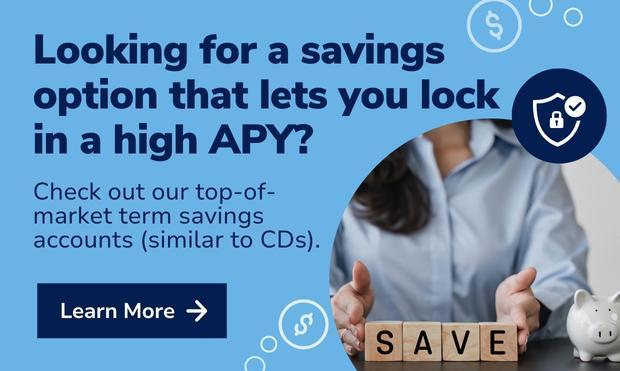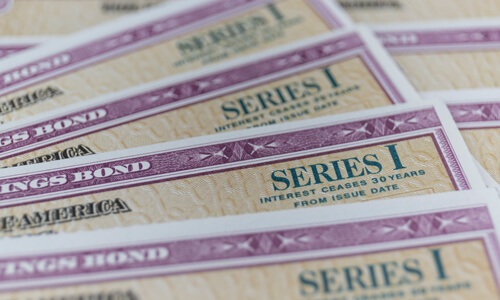Everything in the world is subject to the laws of nature. What goes up must come down. For every action, there is an equal and opposite reaction—and our stock market is no different. Of course, nobody truly knows what the future holds when it comes to the stock market. And the uncertainty surrounding it should give pause to any risk-averse investor looking for a place to grow their wealth.
Before you even begin looking at investment options, answer several key questions that will inform which is the right fit for your needs:
- What is your level of risk tolerance?
- How long will it be until you need access to your funds?
- What penalties and rewards are included with the investment vehicle?
- How much interest will the investment earn?
Consult with your financial advisor to help you answer these questions before making any decisions about where the best place to grow your savings should be.
Below, we’ve included some of the safest places to store your money in an uncertain economy:
Savings accounts: There was a time that a savings account was a fundamental part of most portfolios. According to a recent GOBankingRates survey, 34 percent of Americans today have no savings whatsoever. Savings accounts typically provide easy access to funds, low qualifying conditions and an assured return. Because savings accounts are federally insured to at least $250,000, you’ll also have the kind of security you don’t get from storing your money under your mattress, or in the stock market.
Term accounts: Term accounts are a credit union’s version of a certificate of deposit (CD). Term accounts typically offer higher yields than traditional savings accounts, in exchange for the promise not to withdraw your funds until a specified amount of time—your term—has transpired. Terms are typically set anywhere from three months to five years, giving the investor the ability to manage their assets with more flexibility.
Many investors take a “laddered” approach with terms, in which different accounts are set up with different term limits. This allows for continued growth and greater liquidity. Investors will stagger their term lengths so that they can more easily decide whether to reinvest or move their funds elsewhere once each account matures.
Financial institutions offer a wide variety of options when it comes to savings and term accounts. Learn more about the hallmarks that constitute good term and savings accounts.
High-yield checking accounts: While checking accounts aren’t typically designed for long-term investing, some financial institutions offer a version with high rates of return that can support your short-term or monthly savings targets.
Money market accounts: This type of savings account (not to be confused with a money market fund) is typically known for earning higher interest rates than standard savings accounts. The trade off is that these accounts typically have higher minimum balances, and are tiered (the higher your balance, the higher your rate). As long as you can absorb surprise expenses without dipping below your minimum balance, this could be a good option.
Other investment vehicles to consider: While the aforementioned options all offer great and unique benefits, there are still plenty of other options to consider when looking for a stock market alternative, for instance:
- I-Bonds: These bonds offer investors a fixed interest rate and variable inflation rate, designed to offer a guaranteed return and added protection against inflation. They can be purchased direct from the U.S. Treasury. As an added benefit, this investment is exempt from state and local taxes (interest is subject to Federal taxes), which provides extra incentive for investors.
- U.S. Treasury bills: Treasury bills (or “T-bills”) are sold at a discount of the face value; you receive your money back on the specified maturity date. For example, you could purchase a $5,000 T-bill for $4,800, and at the maturity date, you would earn $200 from your investment. Like I-Bonds, this investment is exempt from state and local taxes, and can be purchased direct from the U.S. Treasury.
- Whole life insurance: Life insurance is already a fundamental component of your financial planning, and some types of life insurance can provide an added savings element. Whole life insurance contracts, for instance, will provide cash value to the insured every month they make a premium payment.
Consult your financial advisor for more on these options.
“Red Flag” Investments: You’re already working to mitigate your exposure to risk when transferring your savings from a volatile stock market. There’s no sense in moving those funds to another vehicle just as uncertain. If you’re looking for an assured return, here are a few investments you may want to avoid:
- Under the mattress: It’s easy to mistake proximity and convenience for security. But the government cannot insure funds that aren’t kept at a federally-insured financial institution. If the money is lost or stolen, you may be left with few options to recover your losses. And remember, cash provides little protection against inflation and the rising cost of living.
- Cryptocurrencies: Cryptocurrencies like Bitcoin and Litecoin have been all the rage as of late, providing huge returns for early investors. But as exciting as this emerging market may be, it is still a highly risky investment that is not backed by the government. Additionally, regulators may soon begin to make changes that could have a drastic impact on the market.
- Peer-to-peer lending: This is another market that has seen growth in recent years due to a proliferation of mobile applications that make peer-to-peer lending easier than ever. While an exciting opportunity, it cannot be fully entrusted to provide a guaranteed return and safe harbor for your savings.








Comments Section
Please note: Comments are not monitored for member servicing inquiries and will not be published. If you have a question or comment about a Quorum product or account, please visit quorumfcu.org to submit a query with our Member Service Team. Thank you.